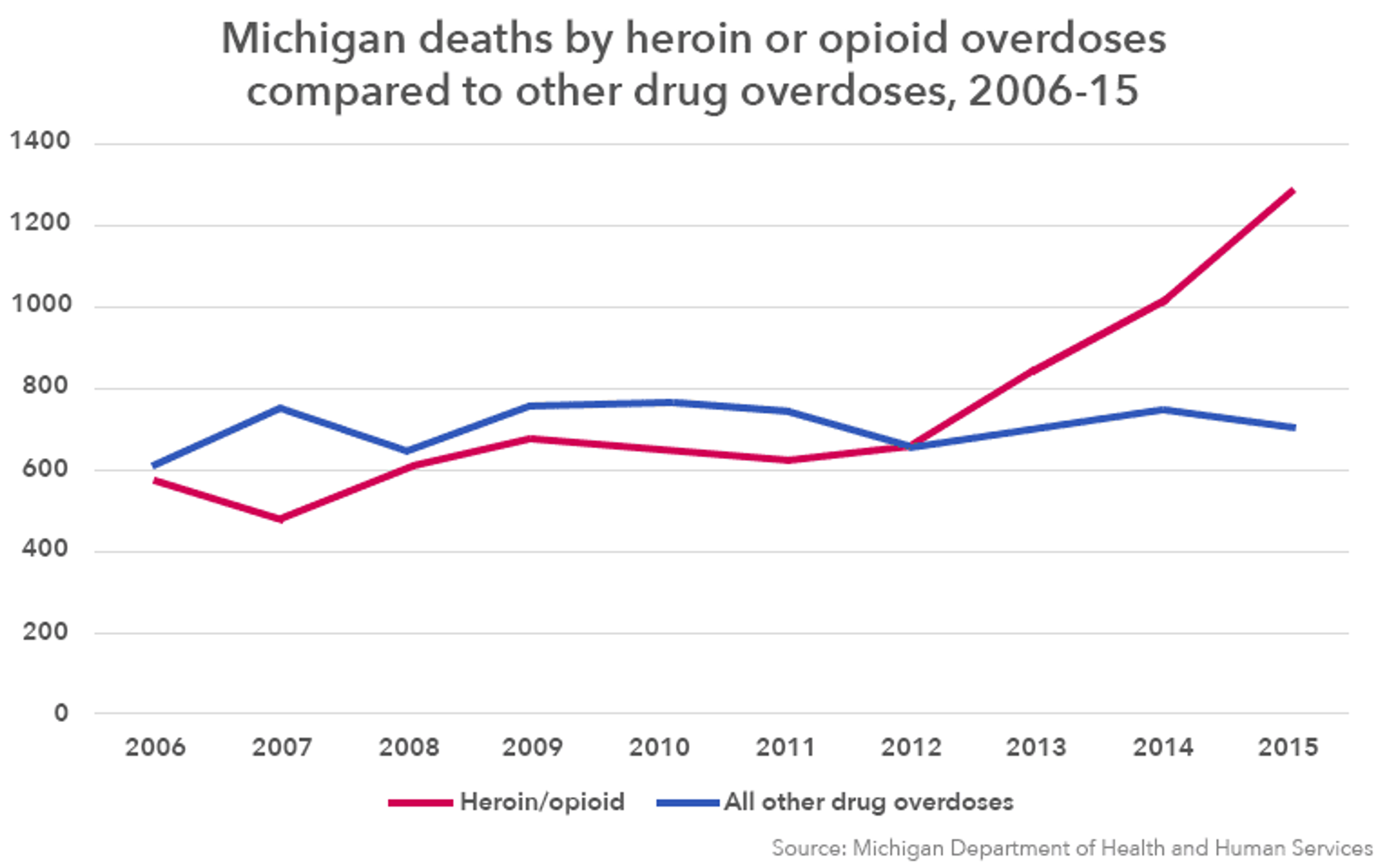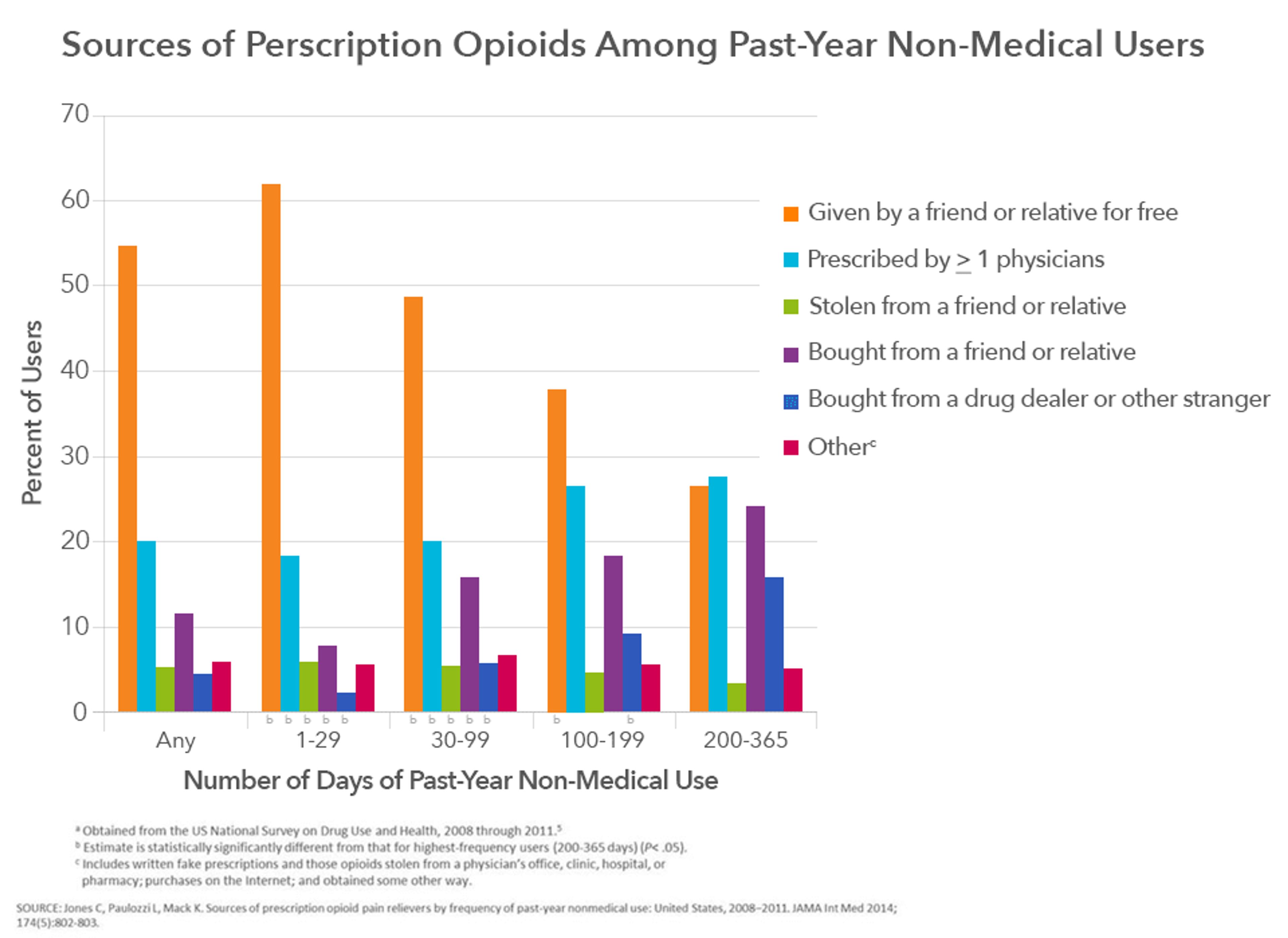Beyond the Card: Coming Together to End Michigan’s Opioid Epidemic
bcbsm
| 3 min read

Doctors write prescriptions to help you feel better, but when it comes to opioids, such as Vicodin or oxycodone, a single prescription could ultimately lead to even more pain and suffering. That’s because while prescription opioids are effective, they’re also incredibly addictive. As a result, people who start taking them might have a hard time stopping—a problem that’s grown into a national epidemic in recent years. According to the Centers for Disease Control, opioid overdoses cause 91 deaths per day. And Michigan is getting hit hard: The number of opioid overdose deaths in Michigan went up 54 percent between 2015 and 2016 (and has tripled since 2012).

As awareness of this issue grows, so does the urgency to do something about it. Last month, Blue Cross Blue Shield of Michigan, in partnership with the Blue Cross Blue Shield of Michigan Foundation, the Michigan Health Endowment Fund, the Community Foundation for Southeast Michigan and the Superior Health Foundation, announced $455,000 in grants to organizations across the state that target this issue. It’s this approach—to spread out the money to multiple recipients—that makes it so effective. “We got a huge response when we put out the call that we were looking for programs to receive funding,” says Pam Yager, manager for Blue Cross Blue Shield of Michigan’s Social Mission team. “This showed us how committed these community organizations are to fixing the problem.” Supporting existing programs allows Blue Cross and its community partners to address a wide range of factors fueling this epidemic. These include:
- The rising rates of opioid prescriptions: Last year, doctors wrote more than 11 million prescriptions for opioids—that’s a bottle for each Michigan resident.
- A lack of addiction training for doctors and patients: Some of the funding will go towards educating providers on alternative pain management strategies and informing everyday people about the right way to take them.
- Limited access to addiction treatment in rural parts of the state: Michigan’s rural counties are some of the most underserved in terms of substance abuse treatment options (and many of those counties see the highest number of opioid prescriptions).

The hope is that this multi-faceted fight reduces how many people die from opioid overdoses. “Almost everyone has been impacted in one way or another by the opioid crisis and we know it’s largely preventable,” says Becky Cienki, senior program officer of the Michigan Health Endowment Fund. “But we can’t fix it in isolation—it’s going to take multiple partners and programs coming together to fight it, which is exactly what we’re doing.” While this grant will have an immediate impact on some Michiganders, the hope is that it inspires a similar strategy around the country. Success depends on uniting the medical, dental and treatment provider communities with nonprofits, and using their combined expertise to arrive at a comprehensive solution that works for all patients and sufferers. Learn more about how the grant is going to make a difference in the above podcast. And check out these other blogs for more insight into this issue:
- Beyond Numbers: Michigan’s Prescription Opioid Problem Deserves Attention
- The Safe Way to Take Prescription Opioid Pain Medications
- How to Help Your Loved One with an Opioid Addiction
Photo credit: pexels.com





